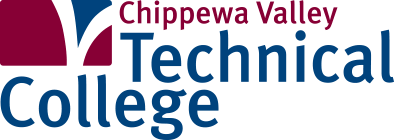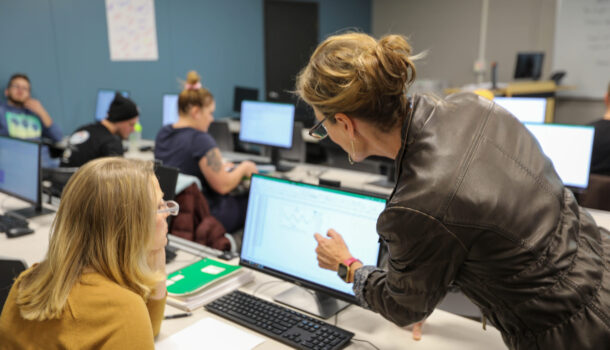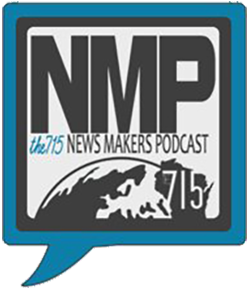ABOVE PHOTO: For more than a year, math students at Chippewa Valley Technical College have been saving, $1.1 million on average in textbook costs after the department chair saw an opportunity to create online resources.
When Lori Ann Simmons went to college, she would go to the bookstore a few days before each semester started and would drop $600 to $800 on books. That was just one semester and before textbook prices surged, she said.

“These resources also encourage collaborative learning and innovation, allowing students and educators to adapt and improve educational content to meet diverse needs.”
-Vince Mussehl, CVTC project director of Open and Affordable Educational Resources
“I had enough money to purchase the books I needed,” she said. “But if you can’t afford it, I can’t even imagine. You’re already not set up for success.”
That’s why, when Simmons learned about Open Educational Resources during a professional development opportunity where she’s a math instructor and department chair at Chippewa Valley Technical College, the gears started turning.
Nearly three years ago she met with her team of math instructors, detailed an opportunity to make a difference in students’ lives by creating online textbooks, and then she “dug in.” Now, Simmons and the team of math instructors are saving students, on average, $1.1 million dollars a year because they don’t have to purchase textbooks – some of those come with price tags of nearly $300 a book.
To begin, Simmons wrote two math textbooks during the fall of 2021. She wanted to test out the books with a new platform. Now all math students at CVTC are learning via online books – most modified by their own instructors.
“Once I tested it and figured out it was amazing, then everyone was on board,” she said. “On the student side, it has been so beneficial. Students are able to start working immediately.”
Simmons said students complete mini lessons by watching videos and filling in guided notes. After each mini-lesson, students complete homework that directly relates to what they just learned. This scaffolding approach has proven to be very beneficial in mathematics, she said.
The online submission tool they utilize, called MyOpenMath, or MOM, integrates seamlessly with the College tools students already use. The app gives instructors the ability to give students multiple attempts at math problems, students can message instructors within the math problems, and the technology is user-friendly for everyone, Simmons said.
“The math team here is amazing. They were all on board and focused on student success,” she said. “It was a decent amount of work for every instructor on the team, but they wanted to do it for the students.”
But Simmons said she and the other instructors had no clue their work would save students more than $1 million a year.
“I didn’t know it would be that big of an impact,” she said. “I just knew I wanted to help them. I wanted to set them up for success.”
Other colleges and universities are reaching out to Simmons to learn how they can do the same.
Vince Mussehl, CVTC project director of Open and Affordable Educational Resources, said he’s happy to see the math department take on this heavy lift.
“Open Educational Resources benefit students by offering free access to quality learning materials, enhancing educational equity and alleviating financial strain,” he said. “These resources also encourage collaborative learning and innovation, allowing students and educators to adapt and improve educational content to meet diverse needs.”
Simmons said the students appreciate knowing that their own instructors wrote the online books they’re using, and that they put the time in to save students money.
“I tell them up front, ‘Hey, I wrote this. Catch my mistakes,’ ” she said. “I keep a folder of the positive things students say over the years. They truly love it, and they’re thankful because it’s free and they appreciate how it’s laid out. I’ve heard the same from the other colleagues in the math department.
“We honed in on what we thought was important. This is important.”


